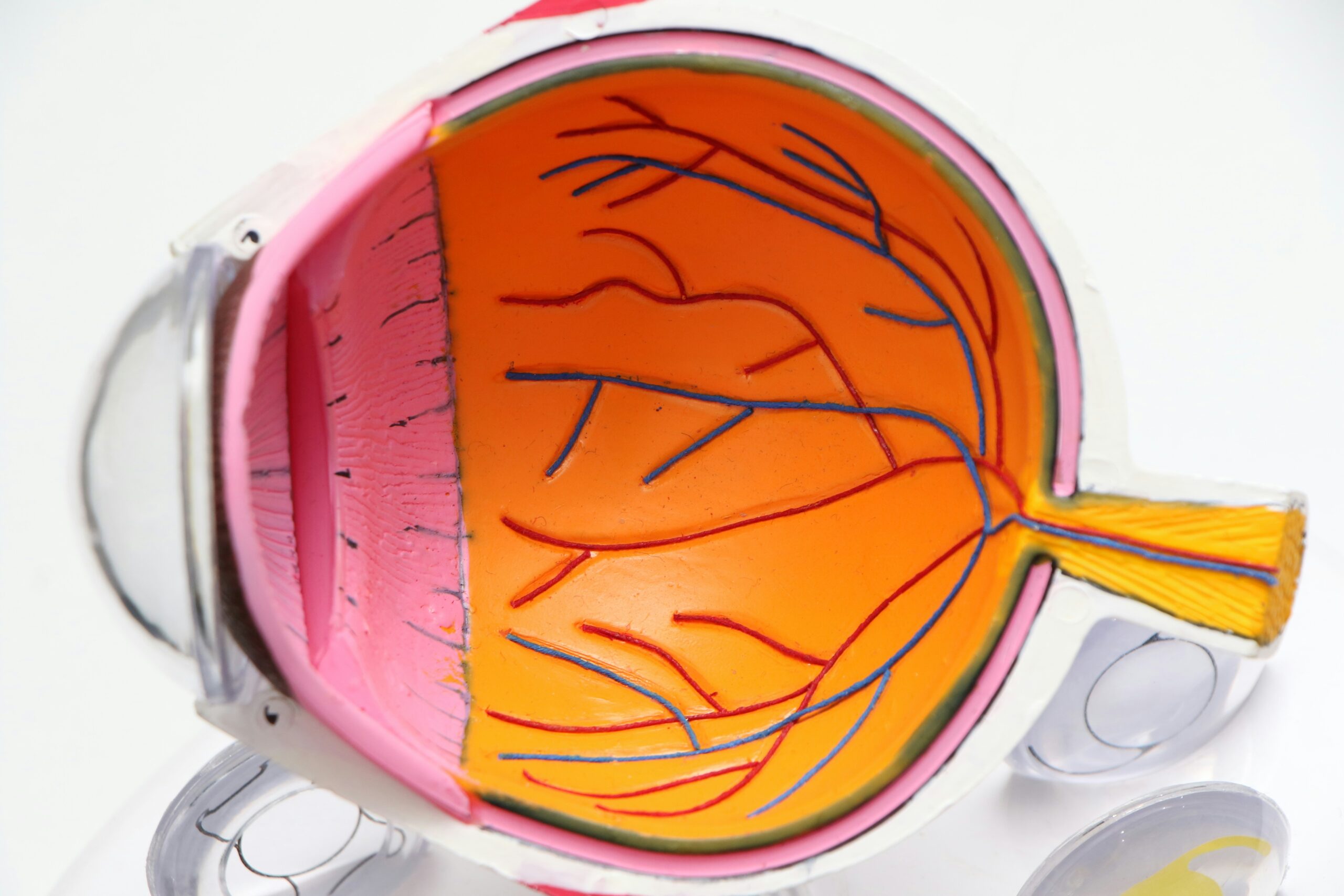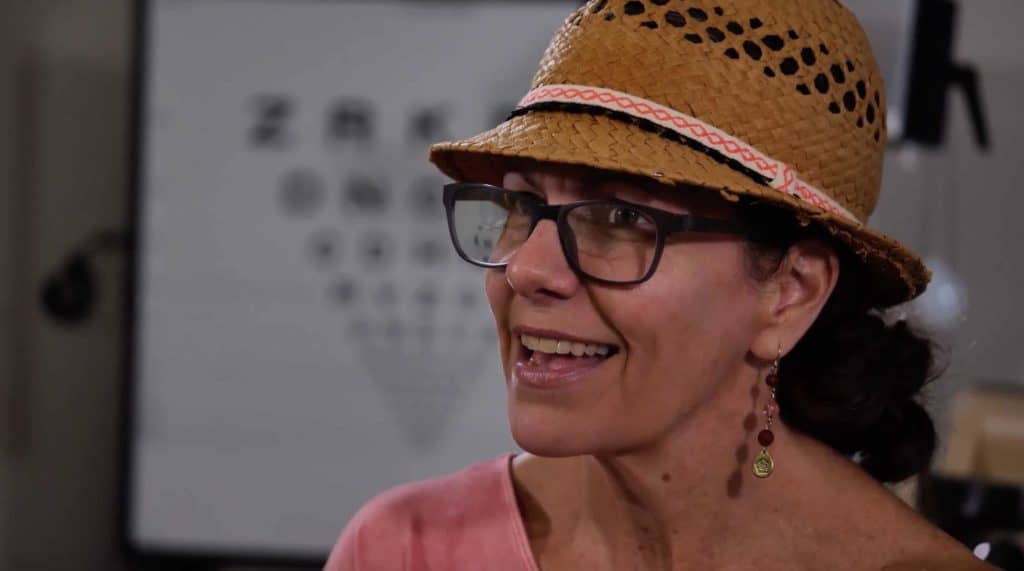Key Takeaways
- Blurred vision, abnormal eye movement, poor eye coordination, and dizziness are common symptoms to experience after concussion.
- Vision problems after concussion can start manifesting weeks or months after the injury.
- Post-concussion vision problems can linger for a long time and even lead to permanent vision loss.
- The right optometric interventions can be extremely effective in alleviating these symptoms.
Days or even weeks after a concussion, it's not uncommon to start noticing symptoms like blurred vision, abnormal eye movement, poor eye coordination, problems with motion, and difficulty reading. This is because it's easy for vision problems to fly under the radar during concussion treatment. For some concussion sufferers who were not lucky enough to get an early diagnosis and proper treatment, this can even lead to permanent vision loss.
However, such a loss can be prevented if handled properly. Mind-Eye has helped many patients find relief from these post-concussion vision problems. To alleviate them, it's important to understand the causes first.
Why Can a Concussion Cause Eye Problems?
According to the CDC, a concussion is a mild traumatic brain injury (TBI) that occurs due to falls, violence to the head, accidents, and other external forces that affect the head directly. One study found that 88% of patients who suffered concussions had oculomotor deficits, or vision problems that occur when the muscle of the eye can no longer coordinate eye movement correctly. There are several potential reasons for this.

Damage to the Optic Nerve
The optic nerve contains numerous nerve fibres that carry visual messages to the brain. A distortion to the optic nerve or optic tract (a continuation of the optic nerve), which can happen during a concussion, may lead to post-concussion inflammation or other serious problems.
Coup/Contrecoup Reaction
This term, originating in French, simply means an injury to both sides of the brain. Coup injury occurs at the exact point of the impact, while contre coup is at the opposite side of the impact. During a traumatic brain injury, an external force hits the head and causes damage. Immediately, the brain enclosed within the skull accelerates to the opposite side, causing secondary damage, which is often more severe. This coup-contrecoup reaction (which means counterblow) can affect both the parietal and occipital lobes that play a role in vision, and this can cause vision problems.
Damage to the Visual Cortex
The visual cortex covers most of the occipital lobe. It helps to receive, process, and translate visual information from the retina, such as color, brightness, shape, and motion. Concussions can damage the visual cortex, leading to problems processing this vital information.
Damage to the Parietal Lobe
TBI sometimes damages the parietal lobe, and eyesight is one of the major senses integrated into the parietal cortex. Thus, damage to the temporal lobe can affect vision.
Note that there is a difference between eye and vision problems. Eye problems affect parts of the eye or the structures surrounding it, while vision-related problems result from damage to parts of the brain and optic nerves. Concussions can cause both eye and vision problems. The only way to understand the exact cause of an issue after a concussion is to visit a specialist.
The Mind-Eye Institute runs a series of tests to ascertain the precise cause of the post-concussion syndrome. By testing visual circuitry, Mind-Eye Institute can discover latent visual processing issues that may have been neglected during the treatment of the concussion.
Vision Symptoms Can Linger After TBI
Post-concussion vision issues can linger for a protracted length of time when they are not detected early—or they are dismissed. Meg, a gymnastics coach and TBI sufferer, says that after her concussion, she had a "brutal" headache that lasted for over a year. She "couldn't find [herself] in space," experiencing compromised peripheral vision and difficulty processing where her limbs were or where to put her feet. Her healthcare professionals assured her that the symptoms would subside in four to six weeks, But that didn’t happen.
These are several types of symptoms that may linger after a TBI.
- Blurred vision—Being unable to see things clearly
- Abnormal eye movements—Spontaneous movement of the eyes, whether up and down, side to side, or in a circular motion
- Poor eye coordination— Constantly skipping lines while reading, head tilting, double vision, or difficulty concentrating on reading
- Difficulty reading—Reading slowly, having to read aloud, or struggling to grasp what was read
- Eye teaming problems—Double vision, headaches, or an inability to focus up-close; this may inspire squinting or covering one eye
- Photopsia—Seeing sparkles or flashes of light without a light source
When post-concussion syndrome symptoms persist some weeks after a concussion, visiting an expert is a vital next step.
Therapy for Post-Concussion Symptoms
Eye patches, prescription contact lenses, and glasses are common forms of treatment. However, some vision problems cannot be effectively corrected with regular glasses or contact lenses, which are generally prescribed after a standard eye exam. These eye exams might not reveal the extent of visual processing issues after a concussion.
To effectively address post-concussion vision problems, Mind-Eye first conducts examinations to measure each patient's visual performance and processing functions.
The Z-Bell℠ Test
The Z-Bell Test is a simple yet effective examination that checks a patient's overall eyesight and the integration of visual processing with listening. A Mind-Eye expert will check the patient's ability to locate sounds from a ringing bell with their eyes closed. Then, the patient will be offered a variety of different lenses to adjust their visual balance and eye-ear coordination until they are better able to touch or move towards the direction of the bell.
With this test, the Mind-Eye team can pinpoint the correct prescriptive eyeglasses or contact lenses for a patient, or implement other optometric interventions to help re-integrate visual and auditory processing of their surrounding space.
Mind-Eye Brainwear™
Mind-Eye Brainwear are specialized glasses that help to address these brain imbalances. According to Mind-Eye research director Deborah Zelinsky OD, who is globally recognized for her studies and clinical work on the retina’s impact on brain function, Brainwear uses "the proper mix of filters, lenses and/or prisms [to] readjust a patient’s balance of visual processing and eye-ear integration."
Post-Concussion Recovery Stories
For many patients who have suffered from lingering visual symptoms of brain injury, Brainwear has brought relief to a wide range of symptoms.

Meg's Return to Quality of Life
Meg told the Mind-Eye team that after her concussion, her quality of life deteriorated significantly. In addition to the lingering headache, she could not perform well as a coach because she had lost speech and vocabulary, had difficulty tolerating light, and was uncoordinated. After getting her lenses from the Mind-Eye team, she was able to coach effectively again, communicate, exercise, and even play the piano better than ever before.
Alan's Triumph at the Driving Range
Alan from Illinois developed double vision after a bicycle accident in 2022. This kept him from participating in his favorite activities, like golf, where he saw two balls instead of one. Alan spent weeks seeking answers for his double vision from various specialists until his primary care physician recommended Mind-Eye. After two years of wearing Mind-Eye lenses, Alan is back to the driving range. Plus, he says not only has "99% of [his] normal eyesight" come back, he no longer even needs his old reading glasses.
Kristie Pays It Forward
After a high-speed crash in January 2022, Kristie, a physical therapist, started having serious visual and perceptual challenges, including her eyes jumping around when she tried to read or drive. Fatigue and nausea made it almost impossible for her to work, and she started thinking of early retirement. Kristie says "I don’t know what I would have been doing today had I not discovered the Mind-Eye Institute." She experienced relief of her visual overstimulation even after her first visit to Mind-Eye, and has since been able to return to helping her own patients through physical therapy.
Start Your Journey to Symptom Relief
At Mind-Eye, we use advanced optometric science to change people's lives for the better. If you have been battling with vision problems following a concussion, and have even tried other treatment options without success, get in touch with one of our New Patient Advocates to book an appointment. Through continuous research and collaboration, we are dedicated to creating life-changing experiences for our patients.
Interested in learning more?
At the Mind-Eye Institute we understand that interactions between the electrical and biochemical pathways in the brain affect physical, physiological and psychological systems. Visual interventions that alter retinal signaling pathways impact both the electrical and biochemical systems.
To learn about next steps for registering as a patient or registering a child as a patient, please call the Mind-Eye Institute office at 847.558.7817 or you can fill out our online New Patient Inquiry Form provided here.

